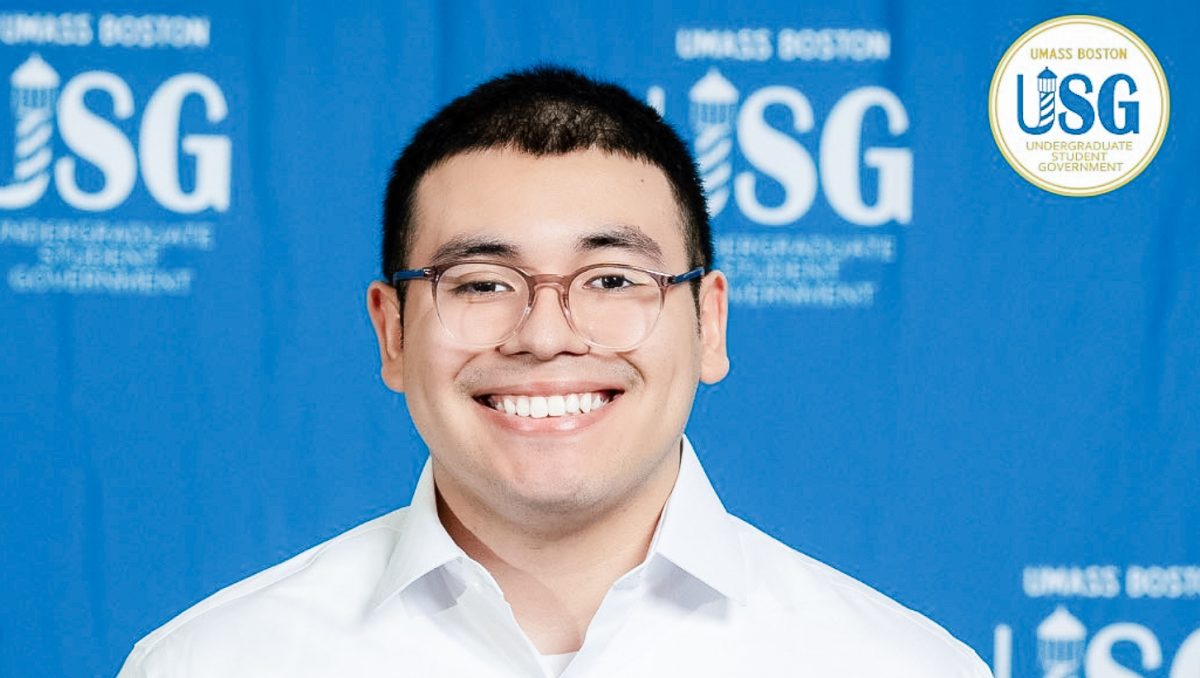While sitting in the Undergraduate Student Government office, Christian Orellana described himself as a person who does his work “behind the scenes.” This behind-the-scenes work, though, has made a big impact, revitalizing the opportunity for students to donate their guest meal swipes to students in need.
Individual meal swipes range between $10 and $16 and allow students to eat as much as they please within the buffet-style dining commons at Dr. J. Keith and Angela Motley Hall East—previously known as the East Residence Hall. The dining commons provides a variety of healthy meal options, including fruits and vegetables, homestyle entrees and desserts.
Students living in the residence halls are required to purchase a meal plan, which comes with five guest meal swipes per semester. Guest meal swipes are not always used by residents, and the opportunity to donate them allows students in need to access unused resources—in this case, abundant food. Students interested in donating their additional meal swipes can approach the office of Urban & Off-Campus Support Services on the second floor of the Campus Center with their student ID.
Orellana first became involved in the work to aid student hunger in his first semester when he was hired as a social service assistant for U-ACCESS. U-ACCESS aims to aid all UMass Boston students in meeting their basic needs by giving them access to food, toiletries, financial resources and housing. Orellana said that working in the office gave him the opportunity to see the needs of students firsthand, while working for a larger purpose.
“I’m really proud of the work everybody in the office does; it gives me a purpose to advocate for students who deal with hunger and making sure they don’t have to choose between eating or having train money,” he said.
Shortly after, Orellana joined the Undergraduate Student Government as the vice speaker of the Senate, focusing on processing acts and resolutions. He explained that a resolution is a written proposal to support an idea, opposed to acts that bind the student government to perform an action.
Currently a sophomore, Orellana helps the legislative branch and the larger student body to write new resolutions. During Fall 2023, Orellana and his collaborators wrote a resolution to allow USG to support U-ACCESS. This came in tandem with renewed promotion of the meal swipe donation program, which was a part of U-ACCESS but had little participation.
Orellana began his career majoring in economics but later switched to public policy. He noted that although economic models help craft policies, “there’s more work to be done behind those numbers and graphs.”
Public policy centers on the approaches to policy development. He said that he was motivated by the opportunity to do things to change the numbers and graphs.
“That is what I felt public policy had me do, write up the change that would help change those demographics,” he said.
He explained that writing policies is a group effort, and as a result, it is desirable to have people with different views. A varied group of people will create friction and lead to compromises where the best policy is written.
During his career as a vice speaker, Orellana saw himself grow, and he is grateful to the many members within USG who have mentored him and pushed him to be a better version of himself.
Orellana is originally from Chelsea, Mass. For him, supporting students’ basic needs is important because he personally understands the benefit that support services can provide a family. Similarly, he wishes to erase the stigma from seeking systems of support.
“I always saw it as an extra help. It doesn’t mean you’re poor, doesn’t mean you’re low income. Asking for help just means that you need those opportunities to just get by,” he said.
Providing support is even more important in a higher education institution. He believes that if students are paying tuition to attend an institution, that institution is responsible for ensuring the wellbeing of their students. That includes providing access to food, among other basic needs.
Through a connection with MASSPIRG, a college student-centered advocacy organization, Orellana had the opportunity to advocate for food insecurity at the Massachusetts State Senate House. He asked the state to increase the funding they give to state universities, so they can appropriately satisfy the needs of their students.





















































